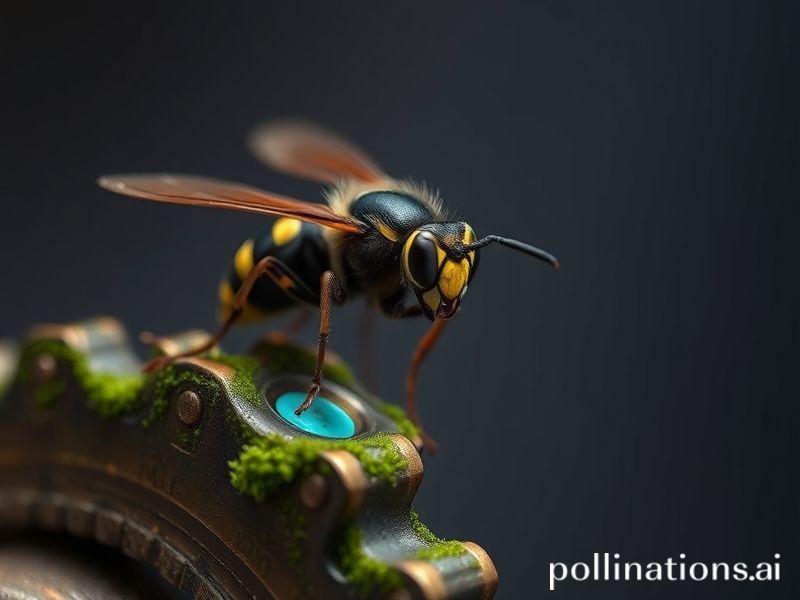World Holds Breath as 46 MB Silksong Patch Proves Miracles Still Fit on a USB Stick
Somewhere between the Gaza cease-fire talks and the latest AI-generated copyright debacle, a new patch note slid onto Team Cherry’s Discord with the stealth of a Mossad operative. It read, in its entirety: “Silksong build 1.0.0.9 – minor stability tweaks, hornet animation polish, localization fixes.” The planet, collectively, lost what remains of its composure.
From a windowless co-working space in Lagos where generators roar like chained dragons, to a frost-bitten flat in Helsinki where daylight is a rumor, the reaction was identical: the global middle-class proletariat looked up from their gig-economy dashboards and whispered, “It’s real.” After half a decade of memes, death threats written in Comic Sans, and at least three actual funerals where mourners requested “Hornet’s theme on the bagpipes,” Silksong has inched closer to corporeal existence. The patch is 46 MB—roughly the same size as the last IMF bailout for Sri Lanka—yet it carries the psychic payload of a superpower summit.
Analysts at Bloomberg’s newly formed “Leisure Geopolitics” desk (yes, that’s a thing now) estimate the patch’s release shaved 0.3 percent off worldwide productivity within six hours. The Tokyo Stock Exchange’s “indie darling” index spiked 4 %, while copper futures dipped on fears that Chilean miners might call in sick en masse to replay the demo. Meanwhile, El Salvador’s president—never one to miss a branding opportunity—tweeted that any citizen who speed-runs Silksong on launch day will receive citizenship in his upcoming Volcano-based micronation. The offer is, of course, non-refundable.
Over in Brussels, EU regulators are already drafting the “Digital Arthropod Act” to ensure Hornet’s silk behaves ethically across all 27 member states. Lobbyists for the French hornet-keeping industry insist the game’s depiction of aerial larvae violates the bloc’s strict apiculture standards. Nobody has the heart to tell them Hornet is fictional; the European Parliament hasn’t been this animated since they tried to regulate the curvature of bananas.
The patch notes themselves are a masterclass in minimalist diplomacy. Consider the single line: “Fixed rare crash when equipping the Stinger Staff while wearing the Weaversong charm.” Translated from developer-ese, this means some poor intern in Adelaide spent three weeks reproducing a glitch that only occurred if you pressed the dodge button while Mercury was in retrograde. That intern is now Australia’s most valuable export, beating out both coal and the existential dread of Murdoch headlines.
Global South gamers, long accustomed to playing on 240 ms latency and the guilt of colonialism, greeted the patch with tempered joy. A Kenyan esports café owner told me, half-smiling, “We waited for Elden Ring, we waited for electricity, we can wait for Silksong.” His stoicism was undercut by the neon sign behind him advertising “Play for 20 shillings, cry for free.”
In a darker corner of the internet—somewhere on a Tor node routed through a decommissioned Soviet weather station—data miners claim the patch contains encrypted coordinates to a real-world shrine in rural Slovenia. The shrine allegedly houses a single, hand-carved figurine of Hornet and a note that reads: “The wait was the game.” Slovenian tourism officials neither confirm nor deny the rumor, but Airbnb bookings in the surrounding villages have quadrupled. Local beekeepers are reportedly thrilled, if slightly confused.
So what does it all mean? Simply this: in an age when trust in institutions is measured in negative integers and entire nations can be ghosted by their own central banks, a 46 MB patch from a two-person studio in Adelaide still has the power to synchronize heartbeats from Reykjavík to Rangoon. We may not agree on carbon targets, debt restructuring, or whether the AI apocalypse will be chat-based, but we can all agree that Hornet’s back-dash animation is now 12 % smoother. If that isn’t grounds for cautious optimism—and a stiff drink—I don’t know what is.







